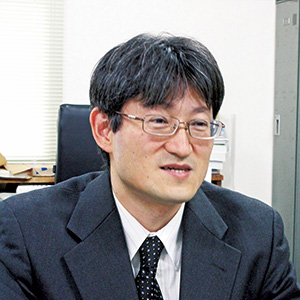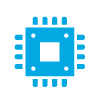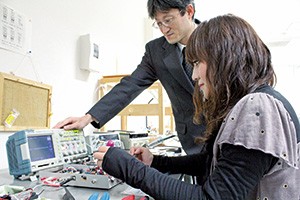
-

Medicine
-

Electron
-

Electrical
KOBAYASHI Koichiro Professor
Course
-
Faculty
Electrical, Electronics, and Info-Communication Engineering
-
Master's Program
Electrical, Electronic, and Communication Engineering
-
Doctoral Program
Systems Innovation Engineering
Degrees Obtained
- Doctorate (Engineering) Field of degree: Electrical and Electronic Engineering
Fields of Research
- Biomagnetic measurement
- Electronic measurement engineering
- Signal processing
- Biomeasurement engineering
Profile
- March 1994: Completed Applied Electrical Engineering Doctoral Program, Department of Science and Engineering, Tokyo Denki University Graduate School
- April 1 1994 - 15 March 1995: Researcher, Department of Research, R&D Center, Ikegami Tsushinki Co., Ltd.
- April 1 1995 - 30 September 1998: Assistant, Department of Applied Electrical Engineering, Department of Science and Engineering, Tokyo Denki University
- 1 October 1998 - 31 December 2001: Assistant, Superconductivity Application Laboratory, Tokyo Denki University
- January 1, 2002 - March 31, 2003: Lecturer, Department of Welfare Engineering (dismantled organization), Faculty of Engineering, Iwate University
- April 1 2003 - March 31, 2007: Associate Professor, Department of Welfare Engineering (dismantled organization), Faculty of Engineering, Iwate University
- April 1 2007 - 31 May 2015: Associate Professor, Department of Electrical Engineering and Computer Science, Faculty of Engineering, Iwate University
- June 1, 2015 - Present: Professor, Department of Electrical Engineering and Computer Science, Faculty of Engineering, Iwate University
Research Themes
The development of biosensing technologies and research related to signal processing
I mainly develop magnetocardiography systems that detect and record the magnetic field generated by the heart with an ultrasensitive magnetic sensor (SQUID flux meter). Specifically, I design and create electronic circuits and biosensors for SQUID flux meter control, and create biosignal measurement and analysis programs. I also strive to develop non-destructive testing equipment that examines the salt damage of steel-reinforced concrete structures.

Teaching Philosophy
I educate students to be able to think. In my lectures, I discuss practical examples as much as possible and engage in dialogs. I think it is important to spend a lot of time face-to-face with students.


